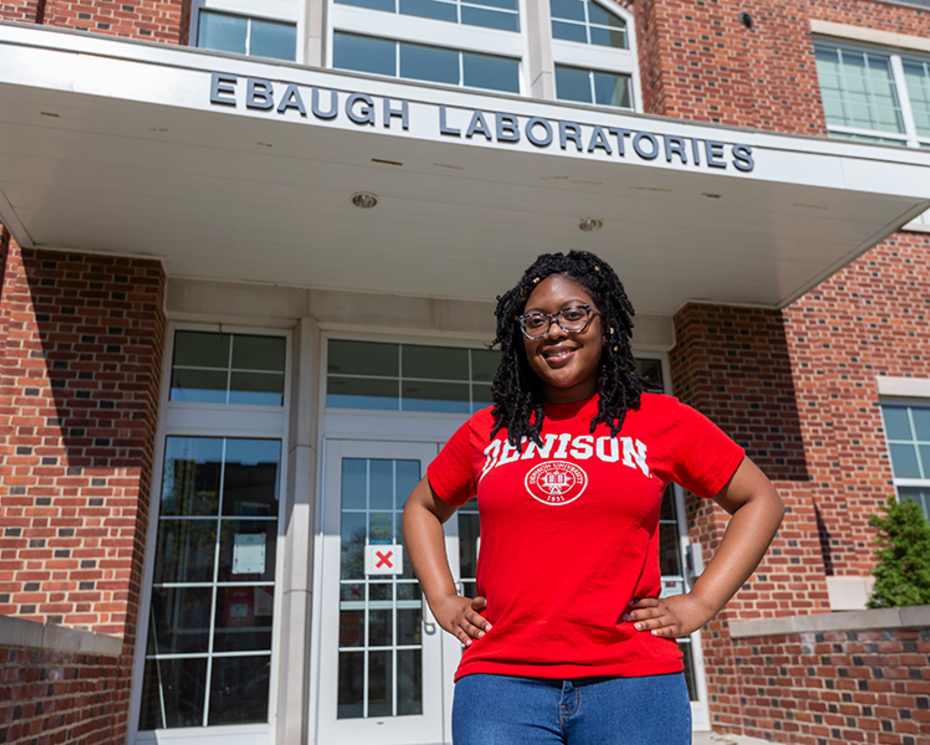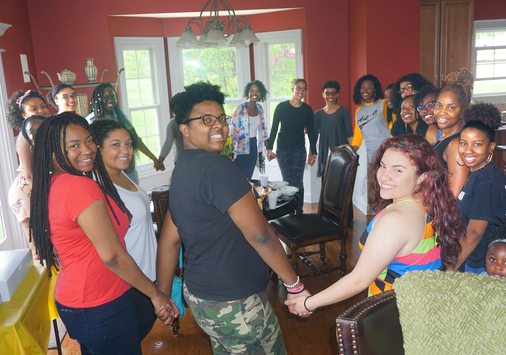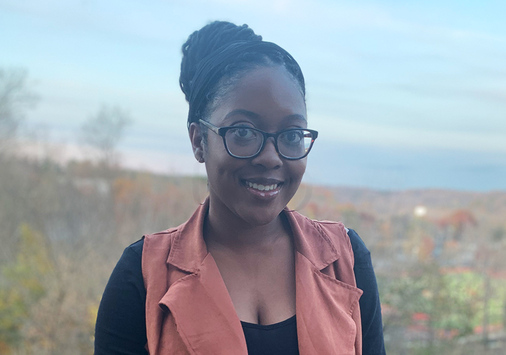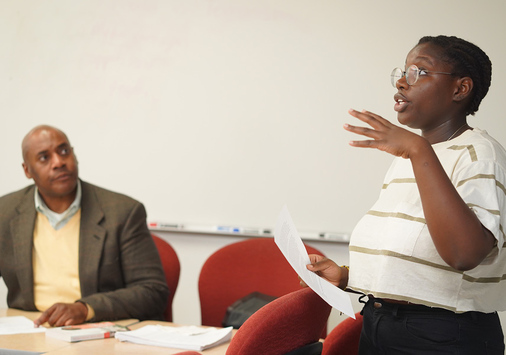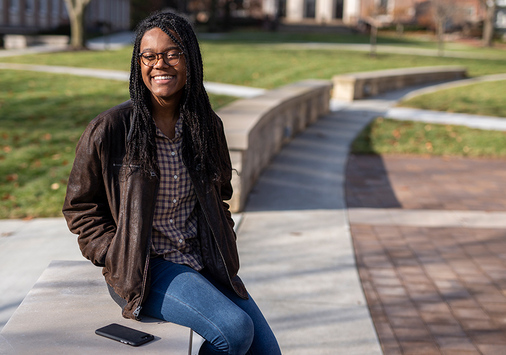Planning Process & Insights
In the summer of 2020, the Denison Forward initiative was chartered by President Weinberg. Denison Forward built on an effort that began in January 2020 via a letter sent by President Weinberg to the Denison community. The letter called for a comprehensive focus on:
Inclusion – developing a campus community of belonging in which everyone feels listened to, valued, and respected
Diversity – recruiting and retaining Denison students, faculty, and staff who represent a wide range of backgrounds, views, and perspectives
Equity – creating opportunities for historically underserved populations to have equal access to and participation in educational programs that are capable of closing the gaps in student success and completion
During the winter of 2020, a process was launched to accomplish this work. That process was just starting to gain momentum when COVID-19 closed the campus in March 2020. When the acts of racial injustice and international protests emerged over the summer of 2020 after the murder of George Floyd, we added a fourth category to our work – antiracism.
Antiracism – calling on the majority/dominant groups to proactively work against racism
Denison Forward Committee
The Denison Forward committee was asked to be self-reflective and self-critical and to focus on crucial diversity, equity and inclusion (DEI) work to support students, faculty, and staff who have historically been underrepresented on our campus while adding an antiracism (A) agenda focused on majority groups to this work. We have transposed the DEIA acronym into IDEA to reflect positive forward thought and action.
From this vantage point, the Denison Forward task force assessed the institution from three subcommittee core areas: its people, practices, and possibilities.
The People Subcommittee was charged to research ways to invest in our people (students, faculty, and staff) through training, development, improved skill sets, and capacity-building.
The Practices Subcommittee was charged with reviewing the following: a) assessment of, reporting of, and responding to incidents of racism and other forms of bias; b) a university-wide learning framework for inclusion, diversity, equity, and antiracism; and c) university-wide policies, pedagogy, processes, and procedures through an equity-minded lens.
The Possibilities Subcommittee was charged with focusing on racial justice efforts that can come to fruition on and off campus, including equipping students of color, first-generation students, and historically marginalized groups with the tools they need to achieve economic and social mobility, and providing majority students with cultural competencies required to succeed professionally.
The subcommittees were asked to identify actions and initiatives to foster an environment where each member of the Denison community can thrive and feel that they have space for their identities, experiences, and perspectives.
We have both an opportunity and an obligation to address inequities on our campus. This work requires us to develop an awareness of existing inequalities and maintain targeted efforts to ensure all students, faculty, and staff have the tools they need to feel connected and valued, and to be successful. It also means we need to be a community where every member sees the IDEA focus as their responsibility and is committed to pushing back against racism and racial bias.
Discovery & Data Gathering
Throughout the 2020-2021 academic year, the subcommittees collected data through open fora, empirical national and institutional surveys, listening tours, constituency group meetings, and one-on-one conversations. The Denison Forward subcommittees submitted reports to President Weinberg in June 2021.
The subcommittees found that Denison has made substantial improvements in some areas. At the same time, we acknowledge that we continue to struggle with others.
Among the areas of progress:
- Denison has become more racially diverse — 46% of our tenure-track faculty hires and 38% of students enrolled during the last 10 years have increased diversity on our campus.
- Retention and graduation rates for students are similar across racial and ethnic groups, as are tenure rates for faculty.
- The college has increased financial support for students. Need-based aid doubled from $30 million to $60 million a year and Denison became one of the few colleges in the country to meet the full demonstrated financial aid need of every student.
- We have dedicated resources to Red Thread Grants and more funds to support books, daily needs, internships, study abroad, and other areas identified by students as financial stressors.
Although much headway has been made, the subcommittees heard a myriad of stories from students, faculty, and staff of color about negative experiences at Denison that left them feeling undervalued and misrepresented and created a sense of marginalization.
During the summer of 2021, President Weinberg and senior staff reviewed the reports and recommendations submitted by the task force. We also engaged EAB, a higher education research firm, to benchmark recommendations against similar work being done on other college campuses. During the fall of 2021, the report and recommendations were shared with groups throughout campus and feedback was gathered. The final report will be folded into the college’s new strategic plan to be completed during the spring of 2022.
